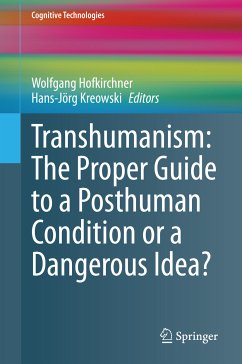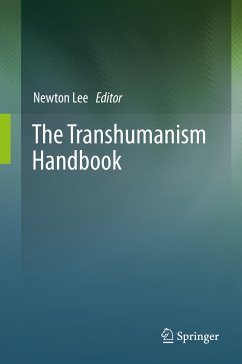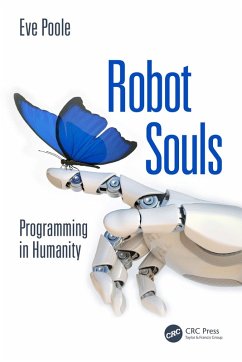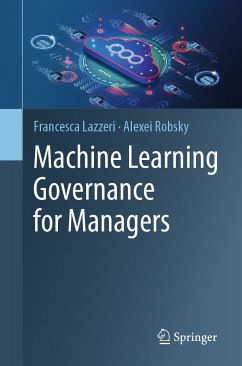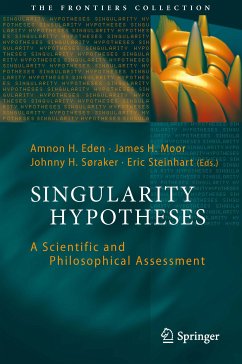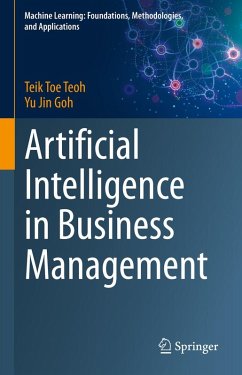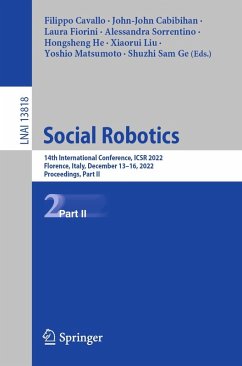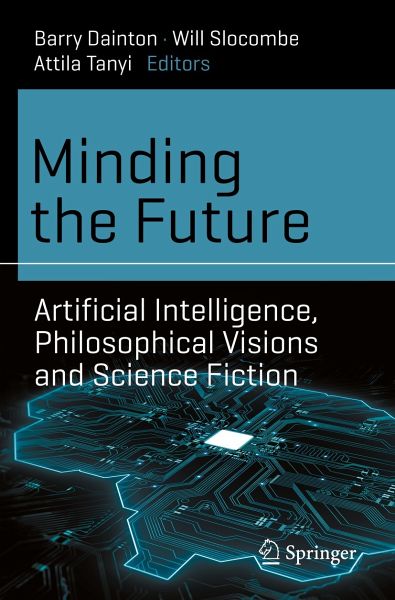
Minding the Future (eBook, PDF)
Artificial Intelligence, Philosophical Visions and Science Fiction
Redaktion: Dainton, Barry; Tanyi, Attila; Slocombe, Will
Versandkostenfrei!
Sofort per Download lieferbar
30,95 €
inkl. MwSt.
Weitere Ausgaben:

PAYBACK Punkte
15 °P sammeln!
Bringing together literary scholars, computer scientists, ethicists, philosophers of mind, and scholars from affiliated disciplines, this collection of essays offers important and timely insights into the pasts, presents, and, above all, possible futures of Artificial Intelligence.This book covers topics such as ethics and morality, identity and selfhood, and broader issues about AI, addressing questions about the individual, social, and existential impacts of such technologies. Through the works of science fiction authors such as Isaac Asimov, Stanislaw Lem, Ann Leckie, Iain M. Banks, and Mar...
Bringing together literary scholars, computer scientists, ethicists, philosophers of mind, and scholars from affiliated disciplines, this collection of essays offers important and timely insights into the pasts, presents, and, above all, possible futures of Artificial Intelligence.
This book covers topics such as ethics and morality, identity and selfhood, and broader issues about AI, addressing questions about the individual, social, and existential impacts of such technologies. Through the works of science fiction authors such as Isaac Asimov, Stanislaw Lem, Ann Leckie, Iain M. Banks, and Martha Wells, alongside key visual productions such as Ex Machina, Westworld, and Her, contributions illustrate how science fiction might inform potential futures as well as acting as a springboard to bring disciplinary knowledge to bear on significant developments of Artificial Intelligence.
Addressing a broad, interdisciplinary audience, both expert and non-expert readers gain an in-depth understanding of the wide range of pressing issues to which Artificial Intelligence gives rise, and the ways in which science fiction narratives have been used to represent them. Using science fiction in this manner enables readers to see how even fictional worlds and imagined futures have very real impacts on how we understand these technologies. As such, readers are introduced to theoretical positions on Artificial Intelligence through fictional works as well as encouraged to reflect on the diverse aspects of Artificial Intelligence through its many philosophical, social, legal, scientific, and cultural ramifications.
This book covers topics such as ethics and morality, identity and selfhood, and broader issues about AI, addressing questions about the individual, social, and existential impacts of such technologies. Through the works of science fiction authors such as Isaac Asimov, Stanislaw Lem, Ann Leckie, Iain M. Banks, and Martha Wells, alongside key visual productions such as Ex Machina, Westworld, and Her, contributions illustrate how science fiction might inform potential futures as well as acting as a springboard to bring disciplinary knowledge to bear on significant developments of Artificial Intelligence.
Addressing a broad, interdisciplinary audience, both expert and non-expert readers gain an in-depth understanding of the wide range of pressing issues to which Artificial Intelligence gives rise, and the ways in which science fiction narratives have been used to represent them. Using science fiction in this manner enables readers to see how even fictional worlds and imagined futures have very real impacts on how we understand these technologies. As such, readers are introduced to theoretical positions on Artificial Intelligence through fictional works as well as encouraged to reflect on the diverse aspects of Artificial Intelligence through its many philosophical, social, legal, scientific, and cultural ramifications.
Dieser Download kann aus rechtlichen Gründen nur mit Rechnungsadresse in A, B, BG, CY, CZ, D, DK, EW, E, FIN, F, GR, HR, H, IRL, I, LT, L, LR, M, NL, PL, P, R, S, SLO, SK ausgeliefert werden.



